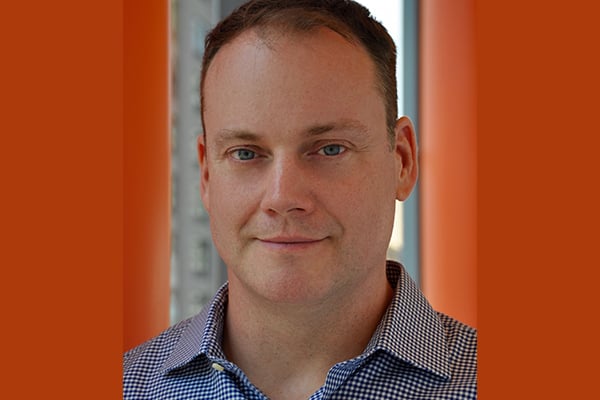Scott Wilson joined the Johns Hopkins Department of Biomedical Engineering as an assistant professor in January 2020. In this interview, he discusses his research in biomaterials and immunoengineering, a memorable “eureka” moment, and his goals for the future.
What made you pursue a career in biomedical engineering?
While I was a chemical engineering undergraduate student, over a three-year span, my father was diagnosed with a string of debilitating diseases. During this time, I could only standby dismayed and frustrated as I watched my father suffer from the effects of these ailments. It was then that I decided to dedicate my life to making people’s lives, and not the things we buy, better.
Why did you choose Johns Hopkins BME? What are you looking forward to most?
I chose to join Johns Hopkins BME because of the unmatched quality of the students, and the opportunity to work with collaborators at JHU, both within and outside the BME department, who are leaders in their fields of expertise and dedicated to engineering the future of medicine.
Can you give a brief overview of your current research?
My lab’s research focuses on the synthesis and preclinical validation of biomaterials-based immunomodulatory therapies that bias the adaptive immune response towards antigen-specific immunity or tolerance. Utilizing organic chemistry, the aim of my group is to synthesize bespoke biomaterials with specific immunomodulatory functionalities. In particular, we are interested in the development of immunity-inducing therapies for the treatment of cancer and infectious disease, as well as tolerance-induction strategies that knock out the antigen-specific immune responses that drive autoimmunity, transplant rejections, and the immunogenicity of protein-based therapeutics.
Have you ever experienced a “eureka moment?”
Before I started my PhD, I was very nervous about joining a lab that focused on biomaterials synthesis. I had not excelled in my Organic Chemistry courses as an undergrad, and I had hoped that the reactions I had done in my Organic Chemistry II Lab were my last. After several months of toil in the lab, I was finally able to complete the synthesis of a novel polymer. I showed the purified material to a postdoc in the lab and started asking her to speculate about the properties of the material. After suffering a few of my naïve questions, she said with a laugh, “This material has never existed before. We will have to test it to answer all these questions.” It was then that I realized that the only place in the world this material could be found was in the vial in my hand. I then fully appreciated and fell in love with the power of organic chemistry, and the ability to synthesize truly unique materials with unprecedented functionalities.
What do you consider your biggest research accomplishment so far?
During my postdoc in Professor Jeffrey Hubbell’s lab, I had the opportunity to pioneer the development of a biomaterials-based strategy to specifically knock out the activity of the auto-reactive T cells that drive autoimmunity (see paper). Based on the efficacy of this biomaterials-based strategy in pre-clinical animal models of autoimmunity, this technology has been transitioned to the clinic and is being investigated in a Phase 1 clinical trial for the treatment of celiac disease. I am extremely excited to have the opportunity to translate one of our therapies into the clinic, and I’m very grateful to the patients who have volunteered for the study.
What impact would you like your work to have?
I would like my work to have two major impacts. The first is to deliver clinically-viable therapies that cure and prevent disease. The second is to provide a unique learning environment that prepares students and trainees to maximize their potential and achieve their long-term life goals.
What are your goals for the future?
My goal is to establish a lab that is recognized as a leader in the development of biomaterials and immunomodulatory therapies. I’m also striving to create a lab that provides a positive training experience, and produces a cadre of young scientists that are able to go forth into the world and have a positive impact on human health. Finally, I wish to contribute to the educational experience of undergraduate and graduate students by establishing courses in immunoengineering and biomaterials that are both fun and challenging.
Do you have any career advice to offer to current students?
Take setbacks as opportunities to learn and improve. When something does not go your way, even if others are more at fault, always question if there was something you could have done better. Focusing on self-improvement will lead to a better version of yourself, and keep you from getting caught in the unproductive trap of worrying about things that are out of your control.
What do you enjoy doing outside the lab?
I enjoy doing activities that allow me to interact with nature, such as hiking, biking, swimming, etc. I also have a passion for travel. To me, there is nothing more rewarding than learning about the history and culture of places abroad and close to home. It allows us to be more empathetic, and provides a mirror for us to reflect on our own way of being.

